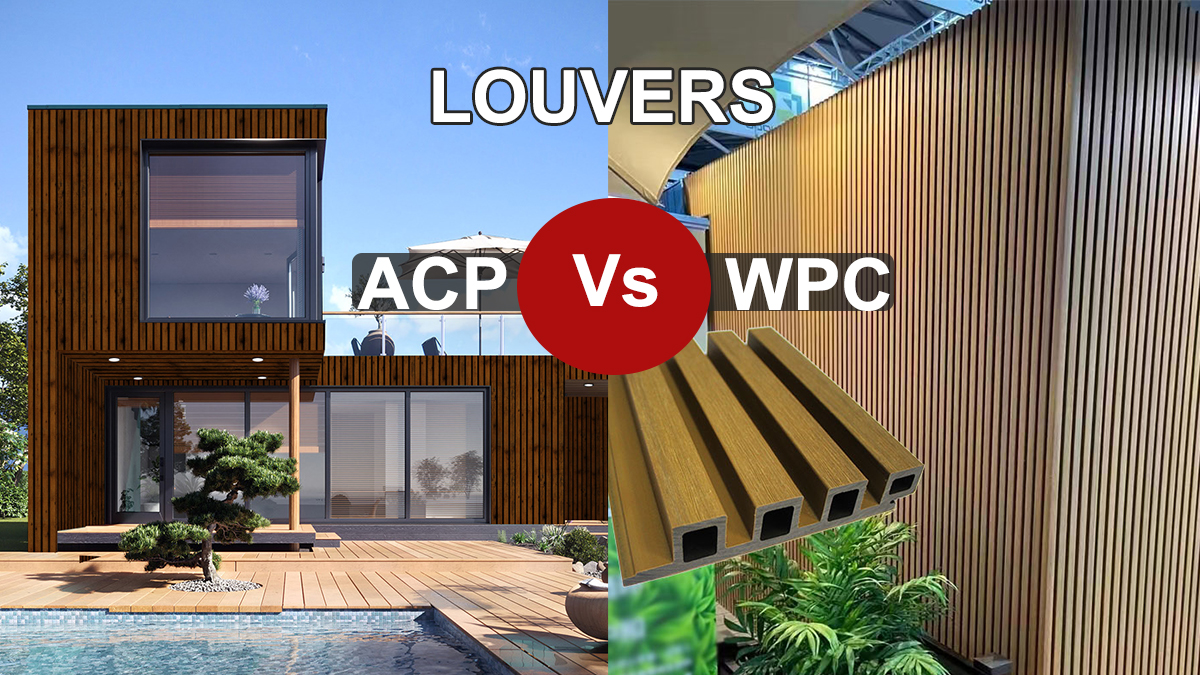ACP Vs WPC Louvers, Which is good for your project?


When comparing aluminum composite panels (ACP) to WPC louvers for exteriors of a house, several factors highlight the advantages of ACP. Here’s why ACP is often considered a better choice:
1. Durability and Weather Resistance:
ACP is highly durable and weather-resistant. It can withstand exposure to sunlight, rain, wind, and temperature fluctuations without significant deterioration. WPC louvers, on the other hand, may be prone to fading, cracking, or warping over time due to UV radiation and weather exposure.
2. Strength and Structural Integrity:
ACP panels are known for their strength and rigidity. They provide robust support and stability when used as exterior cladding or louvers. WPC louvers may lack the same level of structural integrity, which can affect their ability to withstand wind loads or impact forces.
3. Aesthetics and Design Options:
ACP offers a wide range of design options and finishes, allowing for versatility in exterior design. It can be customized to match various architectural styles and preferences. WPC louvers may have more limited design options and may not provide the same level of aesthetic appeal as ACP.
4. Fire Resistance:
ACP panels often have fire-retardant cores, making them inherently more fire-resistant compared to WPC louvers. This fire resistance can contribute to the overall safety and compliance of the building, particularly for exterior applications.
5. Maintenance and Longevity:
ACP requires minimal maintenance and is easy to clean with mild detergent and water. It maintains its appearance and structural integrity over time, reducing the need for frequent repairs or replacements. WPC louvers may require more regular cleaning and maintenance to avoid discoloration or degradation.
6. Environmental Considerations:
ACP is a recyclable material, and many manufacturers use eco-friendly production processes. It has a longer lifespan compared to WPC louvers, contributing to sustainability by reducing waste and resource consumption.
7. Resistance to Pests and Decay:
ACP is not susceptible to pests such as termites or wood-boring insects, ensuring long-term durability. WPC louvers may be prone to insect infestations or decay, especially if they are made from organic or less-durable plastic materials.
8. Cost-Effectiveness:
While the initial cost of ACP panels may be higher than plastic-based louvers, the long-term cost-effectiveness of ACP becomes apparent due to its durability and low maintenance requirements. The need for regular replacement or repairs associated with WPC louvers can lead to higher expenses over time.
It’s important to note that the specific application and project requirements should be considered when choosing between ACP and WPC louvers. Consulting with architects, contractors, or building professionals can help determine the most suitable material based on factors such as budget, design goals, durability needs, and regional considerations.